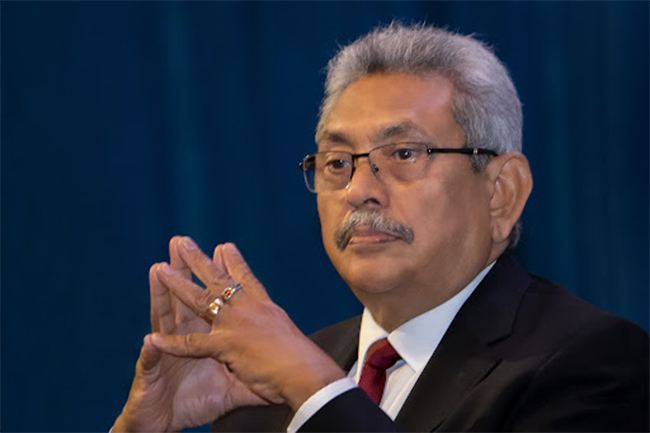Sri Lanka will go carbon-neutral by 2050, stop building new coal power plants – President
September 25, 2021 11:54 am
President Gotabaya Rajapaksa, who addressed the UN High-Level Dialogue on Energy on Friday (Sep. 24), said Sri Lanka plans to go carbon neutral, transition from fossil fuels and promote de-carbonization by 2050.
He also spoke of the country’s ambitious target for 70% of the country’s energy requirements to be obtained through renewable sources by 2030.
Sri Lanka is happy to be a co-lead of the Energy Compact for No New Coal Power, President Rajapaksa added. “We are also discouraging imports of vehicles relying on fossil fuels and will encourage wider adoption of electric cars.”
Further addressing the UN energy dialogue, the President requested the countries with required capabilities to support developing nations in their attempt to transition to more sustainable energy generation and usage.
He encouraged entrepreneurs, small businesses, and community organisations to invest in 7,000 small scale solar projects throughout the country.
“Sri Lanka further welcomes large scale investments in renewable energy, particularly in solar, wind and biomass, over the coming decades.”
Read President Gotabaya Rajapaksa’s full statement delivered at the UN High-Level Dialogue on Energy below:
High Level Dialogue on Energy
24 September 2021
Mr. Secretary General,
Excellencies,
Ladies and Gentlemen,
I am pleased to participate in this virtual High-Level Dialogue on Energy today. Ensuring that everyone has access to affordable, reliable, and sustainable energy is an important goal to pursue globally.
Sustainable energy development continues to be a high priority for Sri Lanka in line with Sustainable Development Goal number 7. Sri Lanka has achieved almost 100% electrification, ensuring uninterrupted energy access for almost all our people.
We have also set an ambitious target for 70% of the country’s energy requirements to be obtained through renewable sources by 2030. Our aim is to transition away from fossil fuels, promote de-carbonization, and make Sri Lanka a carbon neutral country by 2050. Sri Lanka’s commitment not to construct any new coal power plants is reflected in its Nationally Determined Contributions to the UN Framework Convention on Climate Change.
Sri Lanka is happy to be a co-lead of the Energy Compact for No New Coal Power. We are also discouraging imports of vehicles relying on fossil fuels and will encourage wider adoption of electric cars.
Reducing Greenhouse Gas emissions and promoting sustainable energy solutions are essential to ensure the health of the planet. As noted in the recent report by the Intergovernmental Panel on Climate Change, the threats posed by human induced climate change to the planet can no longer be ignored. Transitioning to cleaner energy globally is essential if we are to mitigate this threat in the decades to come.
I request countries that have the required capabilities to support developing nations as they attempt this transition to more sustainable energy generation and usage. Sri Lanka is encouraging entrepreneurs, small businesses, and community organisations to invest in 7,000 small scale solar projects throughout the country. We also recently inaugurated the country’s largest wind power farm.
Sri Lanka further welcomes large scale investments in renewable energy, particularly in solar, wind and biomass, over the coming decades.
We will ensure that appropriate projects are given priority and are rapidly implemented. The fulfilment of human needs and maintaining the health of the planet are twin imperatives that deserve our highest priority as a global community.
I am confident that if we all work together in a true spirit of cooperation and goodwill, within a framework of mutual respect, we will succeed in this.
Thank you.














